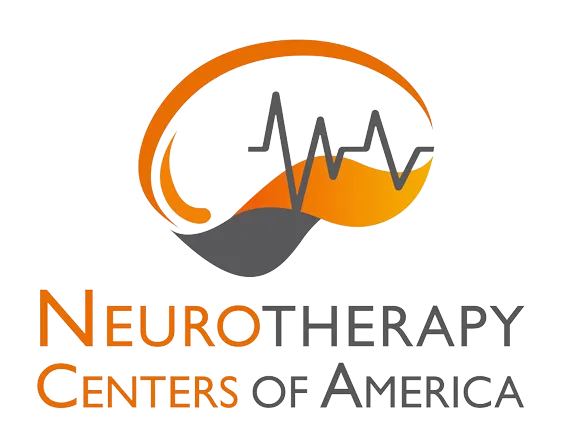
Sleep is the Cornerstone of Health
“Sleep is the single most effective thing we can do to reset our brain and body health each day.” - Matthew Walker, neuroscientist and sleep researcher
Introduction:
When you close your eyes at night, your brain doesn’t shut off. It switches into one of the most active, restorative processes in your life. Think of the brain as the body’s central control system. Just like a computer, it has to clear out junk files, repair glitches, and recharge to keep everything running smoothly. Sleep is when this maintenance happens. Without enough of it, the brain and body begin to malfunction in ways that affect mood, memory, immunity, weight, and even long-term health.
What Happens to the Brain During Sleep
Research shows that while we sleep, the brain goes through cycles that include deep slow-wave sleep and rapid eye movement (REM) sleep. In slow-wave sleep, the brain cleans out waste products through what’s called the glymphatic system, essentially a nighttime cleaning crew that removes toxins linked to diseases like Alzheimer’s. During REM sleep, the brain is highly active, consolidating memories, regulating emotions, and preparing us to handle stress the next day.
When sleep is cut short, these critical processes don’t finish their job. It’s like forcing your computer to restart without installing updates. Eventually, it slows down, crashes, or develops errors.
The Sleep Deprivation Spiral
Missing out on sleep doesn’t just make you tired. It sets off a cascade of problems throughout the body:
Hormone imbalance: Sleep regulates hormones like cortisol, insulin, and leptin. Without enough rest, stress hormones rise, blood sugar becomes harder to control, and hunger signals go haywire, leading to cravings and weight gain.
Weakened immunity: The body produces fewer infection-fighting cells, making you more likely to get sick.
Cardiovascular strain: Poor sleep raises blood pressure and inflammation, both of which increase the risk of heart disease and stroke.
Mental health risks: Chronic sleep loss is linked to depression, anxiety, and cognitive decline.
Over time, sleep deprivation has been associated with obesity, diabetes, dementia, and even shortened lifespan.
Coping with Sleep Deprivation: The Caffeine Trap
When sleep is in a deficit, many people turn to caffeine such as coffee or energy drinks to push through. A cup of coffee in the morning may boost alertness, but relying heavily on caffeine creates problems of its own. While a single cup of coffee in the morning is unlikely to have significant long-term affects, an increasing number of adults and teens are adding several cups of coffee to their day, or energy drinks with up to 200mg of caffeine per serving. Excessive caffeine overstimulates the nervous system, raises heart rate and blood pressure, and interferes with sleep cycles. This makes the next night’s sleep even worse. The cycle leaves people feeling wired but exhausted, caught in a loop of fatigue, stimulants, and restless nights.
The Inflammation Cycle
Poor sleep fuels chronic inflammation, a root cause of many diseases. Inflammation triggered by sleep deprivation affects the gut, the brain, and the immune system. As the cycle continues, many people end up relying on medications such as sleep aids, antidepressants, anti-anxiety drugs, or stimulants to cope. While these may offer short-term relief, they often don’t address the root problem: the brain has lost its ability to regulate itself.
Neurofeedback Therapy Can Help
Neurofeedback therapy, or neurotherapy, uses a non-invasive brain-computer interface to measure brainwave activity to guide neural pathways toward healthier, regulated patterns. Unique training protocols are based on a qEEG brain map, which shows areas of the brain that are overactive, underactive, or imbalanced.
Imagine your brain as an orchestra. In healthy sleep, all the instruments play in harmony. But with chronic stress, caffeine overload, or poor sleep, some instruments are too loud while others are too quiet. Neurofeedback acts like a conductor, helping the brain retrain itself so balance is restored.
The Science
Research shows that neurofeedback improves sleep quality, reduces anxiety, and supports cognitive performance. Studies concluded that training brainwaves linked to relaxation and regulation increases the depth and duration of restorative sleep (Hammer et al., 2011; Schabus et al., 2017). Other research highlights its benefits for depression, ADHD, and post-traumatic stress disorder, conditions that are deeply connected to disrupted sleep and stress regulation (Hammond, 2005; van der Kolk et al., 2016).
For example, clinical trials have demonstrated that neurofeedback can reduce insomnia symptoms by helping the brain quiet excess high-frequency activity, which is common in people who “can’t shut off their thoughts” at night (Cortoos et al., 2010; Arns & Kenemans, 2014). In turn, better sleep strengthens emotional resilience, reduces reliance on caffeine and medications, and restores the brain’s ability to regulate mood and energy naturally.
Breaking the Cycle
One of the most powerful aspects of neurotherapy is that it doesn’t just help the brain. It empowers the person. When the brain begins functioning more efficiently, people often find it easier to make positive lifestyle changes. They have the energy to exercise, the mental clarity to plan healthy meals, and the emotional balance to cope with stress without self-medicating.
Neurotherapy can break the cycle of sleep deprivation, inflammation, and medication dependency by addressing the root cause: dysregulation in the brain’s electrical patterns. With this training, the brain remembers how to rest, recover, and perform at its best.
The Bottom Line
Sleep is not a luxury. It is the foundation of mental, physical, emotional, and cognitive health. Without it, the brain and body slowly unravel. But the good news is that the brain is adaptable. Through approaches like neurofeedback, it is possible to retrain the brain, restore healthy sleep, and rebuild a cycle of resilience and well-being.
References
Arns, M., & Kenemans, J. L. (2014). Neurofeedback in ADHD and insomnia: Vigilance stabilization through sleep spindles and circadian networks. Neuroscience & Biobehavioral Reviews, 44, 183–194.
Cortoos, A., De Valck, E., Arns, M., Breteler, M. H., & Cluydts, R. (2010). An exploratory study on the effects of tele-neurofeedback and tele-biofeedback on objective and subjective sleep in patients with primary insomnia. Applied Psychophysiology and Biofeedback, 35(2), 125–134.
Hammer, B. U., Colbert, A. P., Brown, K. A., & Ilioi, E. C. (2011). Neurofeedback for insomnia: A pilot study of Z-score training for sleep. Applied Psychophysiology and Biofeedback, 36(4), 251–264.
Hammond, D. C. (2005). Neurofeedback treatment of depression and anxiety. Journal of Adult Development, 12(2–3), 131–137.
Schabus, M., Griessenberger, H., Gnjezda, M. T., Heib, D. P. J., Wislowska, M., & Hoedlmoser, K. (2017). Better sleep and memory by neurofeedback enhanced sleep spindles. Sleep, 40(3).
van der Kolk, B. A., Hodgdon, H., Gapen, M., Musicaro, R., Suvak, M., Hamlin, E., & Spinazzola, J. (2016). A randomized controlled study of neurofeedback for chronic PTSD. PLoS One, 11(12), e0166752.
If you liked this blog, please subscribe and be sure to follow us on social media.
Unlimited Neurotherapy
Contact us to schedule a FREE consultation and find out how you can qualify for a FREE cognitive/behavioral and metabolic evaluation.
Contact us at https://www.neurotherapycentersusa.com/contact
Visit our website at https://www.neurotherapycentersusa.com
Visit our Facebook Page https://www.facebook.com/neurocentersusa
*The information in this blog is intended for educational purposes only. The opinions expressed in this blog are the opinions of the blog owner, and any other opinions in quotations are the opinion of the sited reference.
"Copyright Disclaimer under Section 107 of the copyright act 1976, allowance is made for fair use for purposes such as criticism, comment, news reporting, scholarship, and research. Fair use is a use permitted by copyright statute that might otherwise be infringing. Non-profit, educational or personal use tips the balance in favour of fair use."
Neurotherapy Centers of America 2025

Sleep is the Cornerstone of Health
“Sleep is the single most effective thing we can do to reset our brain and body health each day.” - Matthew Walker, neuroscientist and sleep researcher
Introduction:
When you close your eyes at night, your brain doesn’t shut off. It switches into one of the most active, restorative processes in your life. Think of the brain as the body’s central control system. Just like a computer, it has to clear out junk files, repair glitches, and recharge to keep everything running smoothly. Sleep is when this maintenance happens. Without enough of it, the brain and body begin to malfunction in ways that affect mood, memory, immunity, weight, and even long-term health.
What Happens to the Brain During Sleep
Research shows that while we sleep, the brain goes through cycles that include deep slow-wave sleep and rapid eye movement (REM) sleep. In slow-wave sleep, the brain cleans out waste products through what’s called the glymphatic system, essentially a nighttime cleaning crew that removes toxins linked to diseases like Alzheimer’s. During REM sleep, the brain is highly active, consolidating memories, regulating emotions, and preparing us to handle stress the next day.
When sleep is cut short, these critical processes don’t finish their job. It’s like forcing your computer to restart without installing updates. Eventually, it slows down, crashes, or develops errors.
The Sleep Deprivation Spiral
Missing out on sleep doesn’t just make you tired. It sets off a cascade of problems throughout the body:
Hormone imbalance: Sleep regulates hormones like cortisol, insulin, and leptin. Without enough rest, stress hormones rise, blood sugar becomes harder to control, and hunger signals go haywire, leading to cravings and weight gain.
Weakened immunity: The body produces fewer infection-fighting cells, making you more likely to get sick.
Cardiovascular strain: Poor sleep raises blood pressure and inflammation, both of which increase the risk of heart disease and stroke.
Mental health risks: Chronic sleep loss is linked to depression, anxiety, and cognitive decline.
Over time, sleep deprivation has been associated with obesity, diabetes, dementia, and even shortened lifespan.
Coping with Sleep Deprivation: The Caffeine Trap
When sleep is in a deficit, many people turn to caffeine such as coffee or energy drinks to push through. A cup of coffee in the morning may boost alertness, but relying heavily on caffeine creates problems of its own. While a single cup of coffee in the morning is unlikely to have significant long-term affects, an increasing number of adults and teens are adding several cups of coffee to their day, or energy drinks with up to 200mg of caffeine per serving. Excessive caffeine overstimulates the nervous system, raises heart rate and blood pressure, and interferes with sleep cycles. This makes the next night’s sleep even worse. The cycle leaves people feeling wired but exhausted, caught in a loop of fatigue, stimulants, and restless nights.
The Inflammation Cycle
Poor sleep fuels chronic inflammation, a root cause of many diseases. Inflammation triggered by sleep deprivation affects the gut, the brain, and the immune system. As the cycle continues, many people end up relying on medications such as sleep aids, antidepressants, anti-anxiety drugs, or stimulants to cope. While these may offer short-term relief, they often don’t address the root problem: the brain has lost its ability to regulate itself.
Neurofeedback Therapy Can Help
Neurofeedback therapy, or neurotherapy, uses a non-invasive brain-computer interface to measure brainwave activity to guide neural pathways toward healthier, regulated patterns. Unique training protocols are based on a qEEG brain map, which shows areas of the brain that are overactive, underactive, or imbalanced.
Imagine your brain as an orchestra. In healthy sleep, all the instruments play in harmony. But with chronic stress, caffeine overload, or poor sleep, some instruments are too loud while others are too quiet. Neurofeedback acts like a conductor, helping the brain retrain itself so balance is restored.
The Science
Research shows that neurofeedback improves sleep quality, reduces anxiety, and supports cognitive performance. Studies concluded that training brainwaves linked to relaxation and regulation increases the depth and duration of restorative sleep (Hammer et al., 2011; Schabus et al., 2017). Other research highlights its benefits for depression, ADHD, and post-traumatic stress disorder, conditions that are deeply connected to disrupted sleep and stress regulation (Hammond, 2005; van der Kolk et al., 2016).
For example, clinical trials have demonstrated that neurofeedback can reduce insomnia symptoms by helping the brain quiet excess high-frequency activity, which is common in people who “can’t shut off their thoughts” at night (Cortoos et al., 2010; Arns & Kenemans, 2014). In turn, better sleep strengthens emotional resilience, reduces reliance on caffeine and medications, and restores the brain’s ability to regulate mood and energy naturally.
Breaking the Cycle
One of the most powerful aspects of neurotherapy is that it doesn’t just help the brain. It empowers the person. When the brain begins functioning more efficiently, people often find it easier to make positive lifestyle changes. They have the energy to exercise, the mental clarity to plan healthy meals, and the emotional balance to cope with stress without self-medicating.
Neurotherapy can break the cycle of sleep deprivation, inflammation, and medication dependency by addressing the root cause: dysregulation in the brain’s electrical patterns. With this training, the brain remembers how to rest, recover, and perform at its best.
The Bottom Line
Sleep is not a luxury. It is the foundation of mental, physical, emotional, and cognitive health. Without it, the brain and body slowly unravel. But the good news is that the brain is adaptable. Through approaches like neurofeedback, it is possible to retrain the brain, restore healthy sleep, and rebuild a cycle of resilience and well-being.
References
Arns, M., & Kenemans, J. L. (2014). Neurofeedback in ADHD and insomnia: Vigilance stabilization through sleep spindles and circadian networks. Neuroscience & Biobehavioral Reviews, 44, 183–194.
Cortoos, A., De Valck, E., Arns, M., Breteler, M. H., & Cluydts, R. (2010). An exploratory study on the effects of tele-neurofeedback and tele-biofeedback on objective and subjective sleep in patients with primary insomnia. Applied Psychophysiology and Biofeedback, 35(2), 125–134.
Hammer, B. U., Colbert, A. P., Brown, K. A., & Ilioi, E. C. (2011). Neurofeedback for insomnia: A pilot study of Z-score training for sleep. Applied Psychophysiology and Biofeedback, 36(4), 251–264.
Hammond, D. C. (2005). Neurofeedback treatment of depression and anxiety. Journal of Adult Development, 12(2–3), 131–137.
Schabus, M., Griessenberger, H., Gnjezda, M. T., Heib, D. P. J., Wislowska, M., & Hoedlmoser, K. (2017). Better sleep and memory by neurofeedback enhanced sleep spindles. Sleep, 40(3).
van der Kolk, B. A., Hodgdon, H., Gapen, M., Musicaro, R., Suvak, M., Hamlin, E., & Spinazzola, J. (2016). A randomized controlled study of neurofeedback for chronic PTSD. PLoS One, 11(12), e0166752.
If you liked this blog, please subscribe and be sure to follow us on social media.
Unlimited Neurotherapy
Contact us to schedule a FREE consultation and find out how you can qualify for a FREE cognitive/behavioral and metabolic evaluation.
Contact us at https://www.neurotherapycentersusa.com/contact
Visit our website at https://www.neurotherapycentersusa.com
Visit our Facebook Page https://www.facebook.com/neurocentersusa
*The information in this blog is intended for educational purposes only. The opinions expressed in this blog are the opinions of the blog owner, and any other opinions in quotations are the opinion of the sited reference.
"Copyright Disclaimer under Section 107 of the copyright act 1976, allowance is made for fair use for purposes such as criticism, comment, news reporting, scholarship, and research. Fair use is a use permitted by copyright statute that might otherwise be infringing. Non-profit, educational or personal use tips the balance in favour of fair use."
Neurotherapy Centers of America 2025

Download Our Free eBook Now
©2025 Neurotherapy Centers Of America.
All rights reserved.
*We offer a drug-free, non-invasive approach to alleviate symptoms associated with: ADHD, Autism Spectrum Disorders, Anxiety, Insomnia, Learning Disorders, Memory Loss, Fibromyalgia, Migraine and more..
Our advertising features actual client testimonials. Individual results may vary.
©2025 Neurotherapy Centers Of America. All rights reserved.
*We offer a drug-free, non-invasive approach to alleviate symptoms associated with: ADHD, Autism Spectrum Disorders, Anxiety, Insomnia, Learning Disorders, Memory Loss, Fibromyalgia, Migraine and more..


